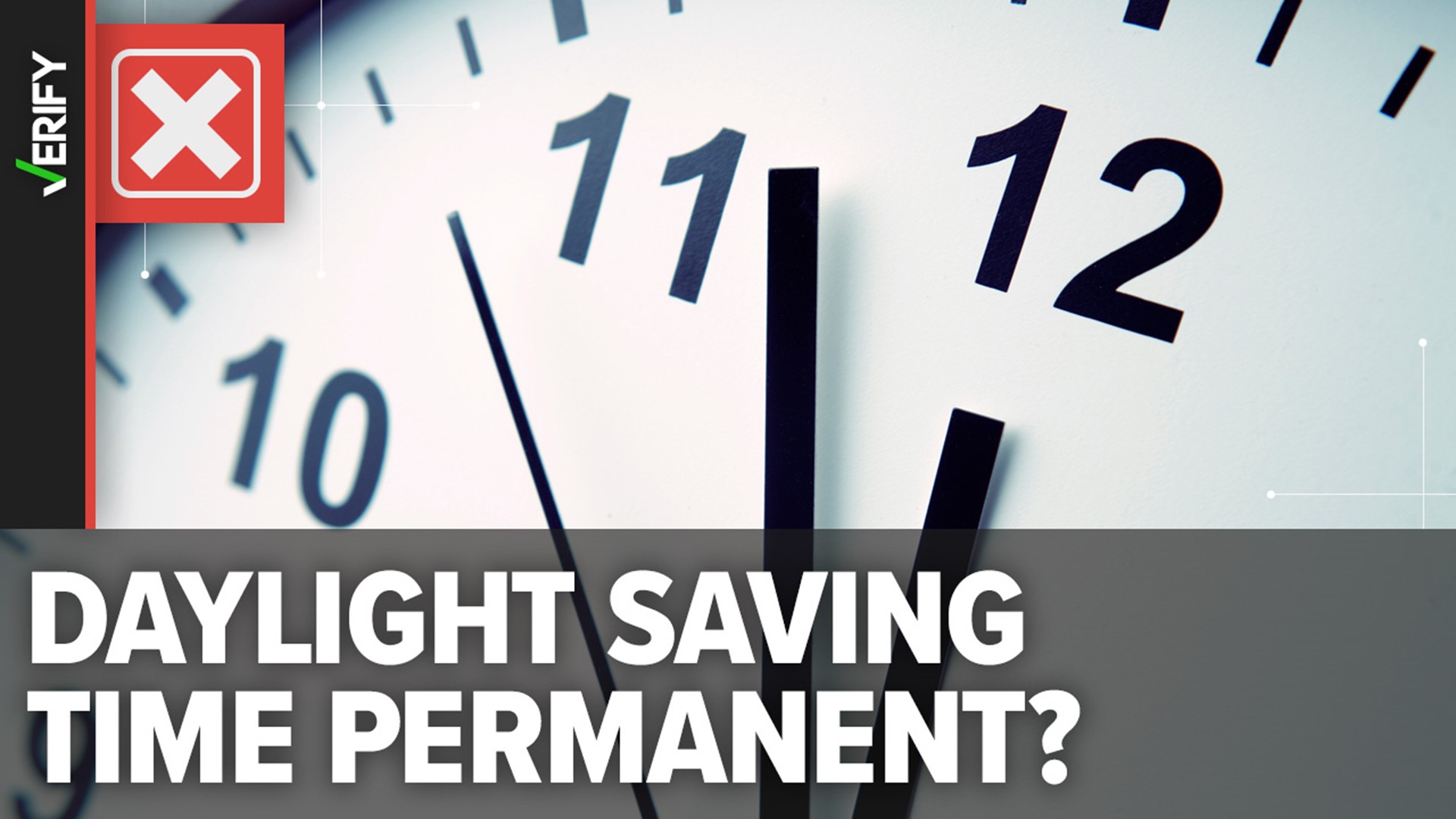On Nov. 5, 2023, most people in the U.S. will “fall back” one hour as the U.S. shifts from daylight saving time (DST) to standard time.
Two VERIFY readers texted us to ask if the U.S. is doing away with daylight saving time after November 2023. Whether daylight saving time will "permanently end" has also been a popular Google search for the past month.
THE QUESTION
Will daylight saving time permanently end after November 2023?
THE SOURCES
- Sunshine Protection Act of 2021
- Other versions of the Sunshine Protection Act from 2021 and 2023
- National Conference of State Legislatures (NCSL)
THE ANSWER
No, daylight saving time will not permanently end after November 2023.
WHAT WE FOUND
At 2 a.m. local time on Nov. 5, 2023, clocks in each respective time zone will fall back one hour as the U.S. makes its annual shift from daylight saving time to standard time, with the exception of a few states that don’t observe daylight saving time.
As things currently stand, most Americans should expect to move their clocks an hour forward next spring and then an hour back in fall 2024.
The belief that DST could come to a permanent end this November likely stems from legislation proposed in Congress a few years ago called the Sunshine Protection Act of 2021. The bill would have made daylight saving time the “new, permanent standard time” beginning Nov. 5, 2023.
But the Sunshine Protection Act of 2021 did not become law. According to information about the bill on Congress.gov, it passed the Senate by unanimous consent in March 2022. No further action was taken on the bill, meaning it did not pass the House of Representatives, was not signed by the president and did not become law.
The House of Representatives also took no action on a separate version of the 2021 bill that began in the House and never went to the Senate.
Sen. Marco Rubio (R-Fla.) and Rep. Vern Buchanan (R-Fla.) frequently reintroduce the bill in their respective chambers, but the bill usually dies before it ever comes close to becoming law. The Senate or House versions of the Sunshine Protection Act of 2023, which were both introduced in March, also failed.
Federal law does allow states to pass laws that exempt themselves from daylight saving time, but does not allow states to permanently observe daylight saving time, the National Conference of State Legislatures (NCSL) says.
“Almost all of the states have considered legislation over the last several years that would place the state permanently on either standard time or daylight saving time,” the NCSL says. “Since 2015, at least 450 bills and resolutions have been introduced in virtually every state, but none of significance passed until 2018, when Florida became the first state to enact legislation to permanently observe DST, pending amendment of federal law to permit such action.”
Arizona and Hawaii, plus the U.S. territories of American Samoa, Guam, the Northern Mariana Islands, Puerto Rico and the Virgin Islands, do not observe daylight saving time, the NCSL says. Standard time, which typically runs between November and March nationwide, is observed year-round in these states and territories.
Since there has been no movement on federal legislation ending the nationwide practice of changing the clocks twice a year, everyone outside of those states and territories should expect the clock changes to continue into 2024.

